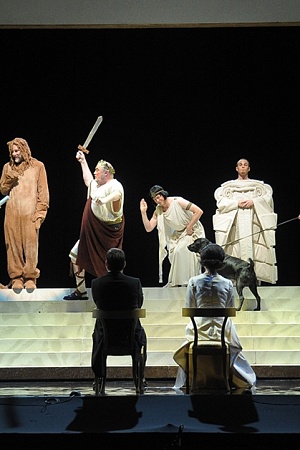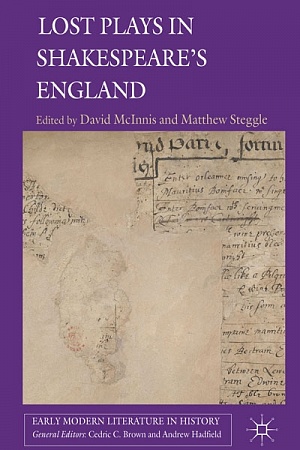Hamlet and the Vision of Darkness
Princeton University Press (Footprint), $77 hb, 392 pp, 9780691166841
Hamlet and the Vision of Darkness by Rhodri Lewis
There have been more than 600 publications on Hamlet in the last five years alone. Uniquely amongst Shakespeare’s plays, Hamlet even has an entire journal devoted to it: Hamlet Studies. Offering something new in these circumstances takes courage. Drawing inspiration from Margreta de Grazia’s liberation of Hamlet from the anachronistic concerns of Romantic and post-Romantic critics (2007), Rhodri Lewis offers a striking account of the ‘unusual and arresting’ qualities of the Danish prince in terms of Shakespeare’s ‘dissatisfaction with various forms of late-sixteenth-century humanist convention’. Inverting the usual paradigm which limns Hamlet as an unwilling or unable revenger who cannot make up his own mind, Lewis prefers to characterise the play as ‘a tragedy in which Shakespeare confronts his audiences with the realization that they have no fixed points of reference with which to help them make up theirs’. Hamlet is at odds with the humanist moral philosophy of its time, yielding a ‘troubled portrait of human identity’.
Continue reading for only $10 per month. Subscribe and gain full access to Australian Book Review. Already a subscriber? Sign in. If you need assistance, feel free to contact us.










Leave a comment
If you are an ABR subscriber, you will need to sign in to post a comment.
If you have forgotten your sign in details, or if you receive an error message when trying to submit your comment, please email your comment (and the name of the article to which it relates) to ABR Comments. We will review your comment and, subject to approval, we will post it under your name.
Please note that all comments must be approved by ABR and comply with our Terms & Conditions.